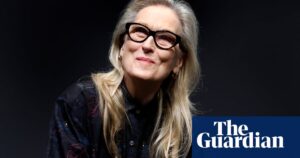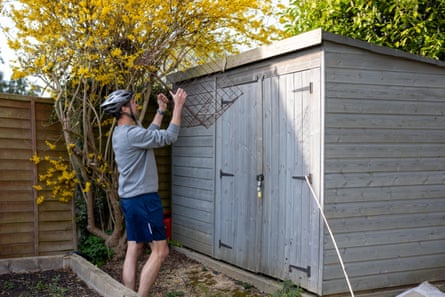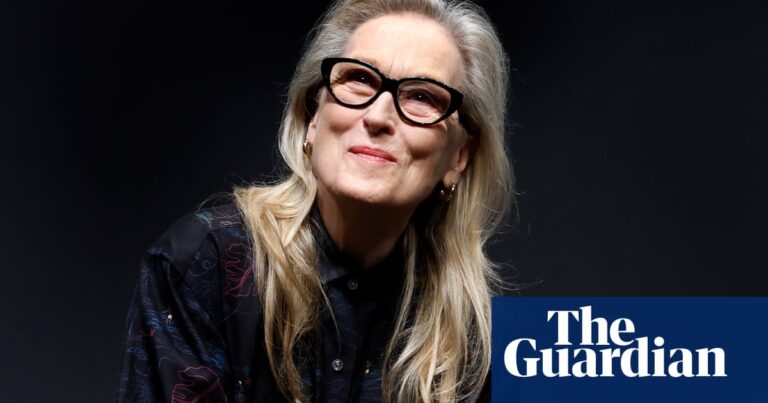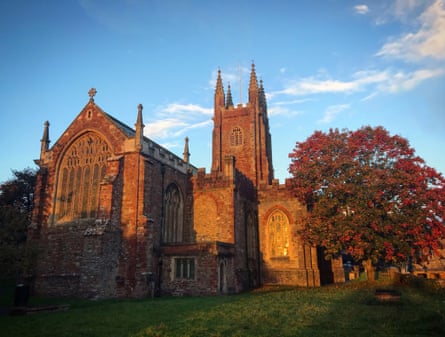Raymond Goodchild grew up in a northern Ontario town called Terrace Bay, which was only 25 miles away from Pays Plat First Nation. However, to him, that short distance felt like worlds apart.
During the 1960s, Terrace Bay frequently experienced heavy smoke from the pulp mills. Similar to other areas in postwar Canada, there was a thriving industrial sector and ample employment opportunities. The town saw improvements such as paved roads and sidewalks, as well as the use of electric lighting in homes during nighttime.

Goodchild’s residence in Pays Plat, on the other hand, was a basic home made of tar-paper and lacked both electricity and running water. At night, cold drafts would whistle through the structure. The distinction between social groups was apparent – and Goodchild, along with other Indigenous individuals, were placed on the disadvantaged side. He faced ridicule at school and endured harsh winters with only a thin denim jacket for warmth. He frequently scavenged through the nearby garbage dump for anything that could be of use. It wasn’t until twenty years later that he finally had a home with access to running water. He had to join the Canadian military before he could even experience the luxury of sleeping on bedsheets.
“When my daughter was born, I prayed for the ability to give her a better life.”

Over 170 years ago, a treaty was made with the Crown that promised Goodchild’s ancestors a portion of the region’s wealth. However, instead of receiving this promised share, his people have been faced with health issues, financial struggles, and a lack of housing. This is a result of the colonial project that was initially planned by the British government and has continued even after Canada’s independence.
Twelve Indigenous communities in northern Ontario have been unfairly deprived of the same standard of living as the rest of society, despite being owed compensation by the government. The potential outcome of a major lawsuit could have significant impacts on both the affected nations and Canada as a whole.
Goodchild, who is now 67 and holds a respected position in his community, acknowledges that certain things have improved over time, such as the availability of running water and electricity. However, despite numerous assurances, poverty continues to plague Pays Plat, worsened by drug addiction and mental health issues.
The former chief and decorated military veteran expressed disappointment in the lack of progress on truth and reconciliation, stating that they are still waiting and will continue to be patient.

Every day, Goodchild passes by the lichen-covered wooden crosses that mark the graves of his mother and father. These graves are located a short distance from the Pays Plat River, which flows through the community and leads to Lake Superior.
The spirits of my ancestors, as well as the people laid to rest here, are always present with me. They are observing my actions and the impact I am striving to make in this world, for the greater good.

For many years, understanding the terrain and bodies of water in this area has been essential for those who live here, as it can be a source of prosperity or harsh conditions. The Anishinaabe people followed a 13-month cycle to plan their harvests. During the end of summer, when the leaves were falling, fiddleheads and sweetflag were plentiful. Three months later, the caribou were hunted for their meat. This knowledge was crucial for mino-bimaadiziwin, the Anishinaabe belief of living a good life.
According to community leaders, a failure to fulfill promises has resulted in generations being denied the chance to achieve mino-bimaadiziwin for far too long.
In the year 1850, a group of Anishinaabe tribes residing near Lakes Huron and Superior entered into a treaty with the British Crown, encompassing an area of 35,700 square miles of land. These treaties, named after fur trader William Robinson who represented the Crown in negotiations, recognized the rights of Indigenous communities to hunt and fish.

Robinson was aware that the Crown was limited in its financial resources for expanding into the area, so he came up with a unique proposal. He added a clause that would allow for incremental increases in annual payments as the land became more profitable, only if the Crown could afford it without suffering any losses.
For the next 173 years, the territory included in the agreement produced significant profits for businesses and brought in substantial income for the province of Ontario. However, the payments were limited to $4 per individual in 1874 and were never raised.
The area saw growth in industry and towns, but the First Nations communities were neglected and faced harsh laws that prevented them from hiring a lawyer or leaving their reserves without government approval.
In 1998, leaders from the communities involved in the Robinson-Superior treaty filed a lawsuit against the government, claiming that it had failed to uphold its commitment to distribute the resources of the land.
The legal proceeding progressed slowly over time and twenty years later, a judge ruled in their favor.
In a ruling made in 2018, Patricia Hennessy, a justice of the Ontario superior court, determined that the “honour of the Crown” had been greatly damaged when past governments failed to keep their promises.
Hennessy put in effort to comprehend the Anishinaabe outlook, actively engaging in sweat lodge ceremonies, pipe ceremonies, teachings about sacred fire, smudge ceremonies, and presentations involving eagle staffs and feathers with her legal teams.
She went against the common belief that Indigenous peoples were tricked into unfair agreements or unknowingly gave up their land. According to Hennessy, the Anishinaabe were aware of what they were doing when they signed over their lands to the Crown for development and settlement. Rather than being swindled, they saw it as a generous act, giving away the land and water that held great significance to their ancestors and provided them with a fulfilling life.
They did this with the belief that the agreement would be kept.
Currently, the 12 countries involved in the Robinson Superior agreement are claiming that they are entitled to significant compensation. Economist Joseph Stiglitz, who has won a Nobel Prize, estimates that the amount could reach up to C$126 billion.
During his testimony on behalf of the First Nations in February, he stated that owing someone something for 170 years is a significant amount of money.
Ontario has opposed these allegations, stating that instead of becoming wealthy, it has invested approximately C$4.2 billion in its initiatives to resolve the north and facilitate industrial development.
The ongoing legal dispute serves as a powerful reminder of unfulfilled commitments for the countries bordering Lake Superior.
Marcus Hardy, the leader of the Red Rock First Nation, expressed concern over the number of lives that could have been saved if individuals had access to adequate healthcare, suitable housing, clean water, and necessary medication. He emphasized that this issue goes beyond financial compensation and instead highlights the violation of rights and hindrance of living a fulfilling life for his community.


At the reserve’s newly built community butcher shop, a bull moose hangs from a steel rack. The hunter and his family will soon neatly dismantle and parcel off the hundreds of pounds of meat.
Created to combat a situation of food insecurity, this store combines traditional wisdom with contemporary conveniences. When autumn arrives and the harvest begins, younger hunters generously contribute moose meat to their elders, while the community organizes a food collection for those who are facing difficulties purchasing groceries.

The income levels on reserves are significantly lower than other areas in the nation, and there is a consistent issue with high rates of child poverty. Indigenous children living on reserves receive less financial support for their education compared to those in nearby towns. According to the auditor general’s report from 2011 to 2016, only 24% of students on reserves were able to complete high school within a four-year period. Access to basic healthcare services, such as doctors and dentists, is often limited.
The Canadian government acknowledges that their past actions of forcibly assimilating Indigenous peoples and relocating First Nations to unfavorable reserves have led to lower life expectancy, poverty, and sickness.
As we drove through the Red Rock reserve, a neighborhood surrounded by trees such as fir, spruce, and birch, Hardy explained how Canada’s “profoundly racist” Indian Act policies have a pervasive impact on everyday life.
As a former member of the Canadian military who completed two deployments in Afghanistan, Hardy struggled with reconciling his service to the nation with how the Crown treated his community.
Canada took possession of large amounts of reserve land during World War I. In certain instances, the government gifted the land to non-Indigenous veterans through a farmland grant program that did not include Indigenous individuals.
Native American veterans frequently encountered institutionalized prejudice, such as a clause in the legislation stating that any person classified as “Indian” who was away from their designated land for four consecutive years would forfeit their legal standing – resulting in numerous Indigenous veterans discovering upon their return that they had been deprived of their rights by the national administration. Due to the restriction on alcohol consumption for Native American men under the Indian Act, some chose to relinquish their Indigenous status in order to visit a bar operated by the Royal Canadian Legion.
Hardy stated that after fulfilling his duties, he would go out for a few drinks. He expressed his disbelief at the terrible things they experienced, describing it as a severe violation of human rights that continued for an extended period of time.
Although there have been revisions to these regulations, the Indian Act continues to contribute to disparities. The government holds all reserve land, resulting in residents not having ownership of the land beneath their homes and being unable to use it as collateral for business ventures or loans.

Juanita Starr, a member of the Biigtigong Nishnaabeg community, reflects on the fact that they are located 130 miles east of Pays Plat, surrounded by basalt cliffs and golden tamarack trees. The possibility of a large settlement serves as a stark reminder of how vastly different the lives of their ancestors may have been.
Although her grandfather possessed an entrepreneurial mindset, the limited resources in his community hindered the fulfillment of his ambitious ideas, such as building a solar farm.
Starr, the community’s sustainable development director, reflected on the potential impact of receiving this sum of money over the years.
As her two young kids continue to develop, the prospect of receiving a significant sum of money has altered her perspective on future generations.
She wondered how we could prepare for their futures and ensure they are well-prepared, in case my son decides to attend Harvard Law School or Trinity College.
Following the testimony of leaders and respected members of the community, including Raymond Goodchild, Justice Hennesy has been given the responsibility of determining a just compensation for the indigenous nations. The province of Ontario has argued that this task should not be handled by the courts, a stance that has been rejected by the First Nations.
Brian Gover, a lawyer representing seven First Nations, stated that if they are not receiving fair treatment from the government, they must seek recourse through the court system. He acknowledged that the courts may not be the most suitable avenue for addressing compensation issues related to treaty rights, but emphasized that individuals regularly turn to the court system for complex damages calculations in order to seek justice for harm done to them. It is disheartening that Indigenous peoples are being directed towards alternative processes that have proven to be ineffective.
For leaders within the community, this issue revolves around principles of fairness and equality.

“We were forced into extreme poverty. However, we are now potentially reaching a solution where our community will no longer have to live in terrible conditions. This will allow us, as First Nations people, to achieve our full potential on the land that rightfully belongs to us,” states Wilfred King, the chief of Gull Bay. “Is this justice? I am uncertain. But it does acknowledge the racist beliefs of concepts like the ‘Doctrine of Discovery’ and the creation of a legal system that justified the seizure of Indigenous lands.”
The opportunity for a substantial agreement is seen by King as a possibility to tackle the urgent requirements of the community, including constructing housing, medical facilities, and mental health services. Gull Bay, located on the rugged coast of Lake Nipigon, 120 miles north of Thunder Bay, requires updates to its water and sewer systems, as well as paved roads and the potential for sidewalks. King is beginning to consider the idea of having permanent dentists and doctors in the community, and possibly even a cooperative grocery store.

King stated, “We are on the brink of achieving great things. Settlement of these claims and standing up for our rights are crucial for development. Without First Nations as partners, progress will not be made.” He added, “When we thrive, everyone benefits.”
Source: theguardian.com
















